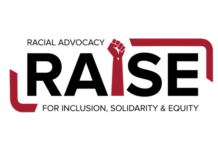It is a winter evening during exam season. After a full day of studying on the 10th floor of Dana Porter Library, you’ve woken up from an unplanned nap of unknown length, having occupied one entire group study table for yourself, iced capp and Lazeez strewn out. Although you’ve never taken much to the “the sugar cube” nickname, looking out of the window slit nearest to you, you can’t help but see the students circling around the entrance like marching ants. From the ground, people can see the window light flicker as you play with the blinds. You have an exam tomorrow, midday, which you have prepared for past the point of helpfulness, so you decide to spend the night walking through the library, floor by floor.
The ninth and eighth floors are surrounded by individual study desks, little wooden dens which ration one window slit per student. There is a zen to this arrangement — especially in the afternoon when each is occupied by hunched-over pairs of students, lost to the world in their work, which can make all the difference to someone in search of someplace to finish a particularly daunting assignment. “In a way I think I associate it with ‘pressure’ since I expect to perform well while there, but this doesn’t bother me as much as it excites me, for the most part,” said student Charlie Dickson.
On the seventh floor, it’s easy to miss the reflection room. There’s a bin of mats — foam and knit — and a few squat stools. You lie down on a mat and think about all the books housed in this building. You heard a rumour during an orientation tour that the library is sinking into the ground. The engineers forgot to consider the weight of all the books, and now the library is forced a little further down each year. You yourself are sinking into the floor. Ralph Stanton — the same professor whose pink ties became a symbol for the math faculty — is believed to have started the rumour, although he denied it himself. Outside of this myth, too many books has not been the concern at Dana Porter, and the concern has historically been quite the opposite. In the 60s and 70s, UW’s library was one of the poorest in the province, so much so that Douglas Wilcox, an arts student, told the Waterloo Record, “I don’t think you would find any student who would say our library is anything but deplorable.”
The sixth floor contains books on European history. It’s where student Parsa Salimi says he felt like he was “in heaven” — “I remember writing my final medieval philosophy paper on the sixth floor of Dana Porter. I wanted to trace one philosophical idea through the ages, and so I went there, and right beside me there was basically the entire history of philosophy right there, with commentaries and translations. Since then I have visited those two shelves more than a dozen times… they have everything. Maybe even a bit too much. Volumes upon volumes about every king and queen who has ever lived… going to Dana Porter really gives you a sense of the vastness of knowledge that there is out there. Every little shelf has the contents of an entire field of study. It’s great.”
Floors four and five aren’t for your browsing; the library staff work here. You can feel the mystique oozing from the behind-the-scenes of the library. The library used to have an internal news gazette, Happenstance, which promised the library employees “staff gossip, information, gripes, questions and letters, social news suggestions, an outlet for [their] creative work.” Other intra-library communications available in the archive include unattributed poems like “December 23rd at 3, We’re having everyone to tea.”
The third floor is unlike the rest you’ve walked through. There’s a reading room filled with magazines and worn, comfy leather chairs. It features a computer lab, an instance of the biggest change in libraries (if not the whole world) in the past hundred years. At Dana Porter, the introduction of the computer was met with some apprehension. Bill Watson was the university librarian during the advent of computer catalogues, and he assured the computer-skeptics would still have access to low-tech borrowing: “I have enough sympathy that they will have the old card method available if they want.” Of the computer’s power at UW, librarians predicted: “The computer and related equipment will not replace the book, but will extend its power in approximately the same way as the jet plane has extended the range of the human foot as a means of travel.”
As you make your way to the ground floor, past the printers and circulation desk, you see a student struggle to pack up a stack of books from the self-checkout. The sun is setting, and still there are students coming in to get a few more hours of good work in. Despite the ease of access to information on the Internet, there is nothing like a good book, and certainly nothing like a good book borrowed for free.






























